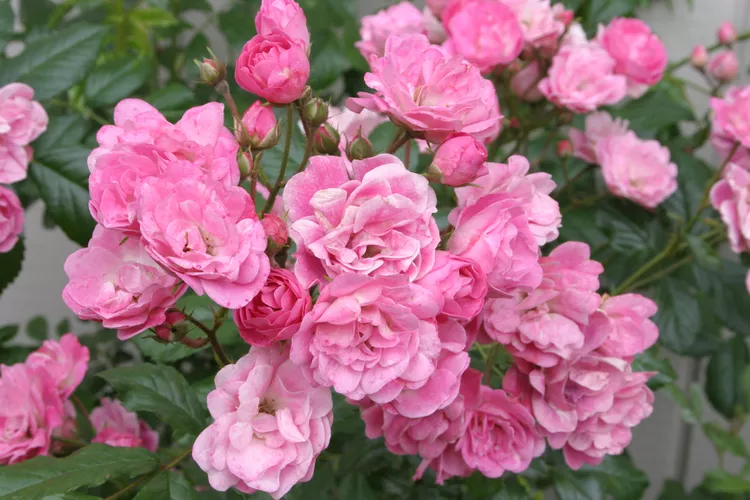How and When to Fertilize Roses for Bigger, Brighter Blossoms

For the most part, roses are pretty tough plants that will grow and bloom without demanding much attention from you. But to enjoy the biggest blooms and healthiest growth, roses need more feeding than most flowering shrubs. Fortunately, providing the nutrients they need is easy, and you can do that organically or with synthetic fertilizer products. The key is to use the best rose fertilizer with the right balance of nutrients and to do so regularly. Knowing when to fertilize roses and keeping a consistent schedule will reward you with a garden filled with stunning, fragrant flowers.
Why Roses Need Fertilizing
Like all plants, roses need three primary nutrients: Nitrogen (the “N” on a fertilizer label), phosphorus (P), and potassium (K), plus several secondary and trace elements. Trace elements (boron, chlorine, copper, and iron) promote plant cell and root growth. Most garden soils provide some of these nutrients, but they become depleted as the plants grow and use them. That’s where you come in; adding nutrients back to the soil helps roses perform their best.
The Best Rose Fertilizers
Primary nutrients are available from both organic (derived from plant or animal life) and synthetic or inorganic materials. Fertilizers come in dry, liquid, or foliar spray form. Shop for a product labeled for roses and carefully read the directions for amounts and frequency of application. Remember that more is not better; excessive fertilization can damage plants or make them susceptible to disease and insect attack.
Organic Rose Fertilizers
Using organic sources of nutrients to feed roses has the benefit of being less likely to overload the soil with unnecessary chemicals. However, the nutrient concentration in organic products is generally lower than synthetic products, so more frequent applications are recommended. The tradeoff is that organic products also feed soil organisms and develop humus (organic material, usually from decomposing leaves or other plants), making the soil healthier for plant growth. Good options include:
- Fish emulsion
- Aged manures
- Compost tea
- Alfalfa meal
- Bone meal
How and When to Fertilize Roses
Most roses need regular feeding throughout the growing season. But exactly how and when to fertilize roses depends on if they’re new or established plants, and if they are repeat blooming roses.
Newly Planted Roses
When adding a new rose plant to your garden, add compost to the hole at planting time. Then, provide a liquid fertilizer (synthetic or organic) about a month later, after they’re established.
Established Roses
Start feeding existing rose plants in spring when new growth is about 6 inches long. Provide a second feeding of liquid fertilizer after the first bloom.
Repeat-Blooming Roses
Fertilize repeat-blooming roses in spring as you would any other rose, then every 2-3 weeks until late summer.
Tips for Fertilizing Roses
- It’s a good idea to do a soil test every few years, especially if your soil pH needs to be adjusted to keep your roses healthy. The results will help you figure out exactly which type of fertilizer and other soil amendments like garden lime that you need to add.
- If conditions are dry, water your roses before feeding them, and keep them well hydrated afterward. This helps the plants absorb nutrients better and prevents fertilizer burn on roots and leaves.
- Stop feeding about eight weeks before your average first frost date to avoid stimulating too much new growth that cold temperatures will damage.